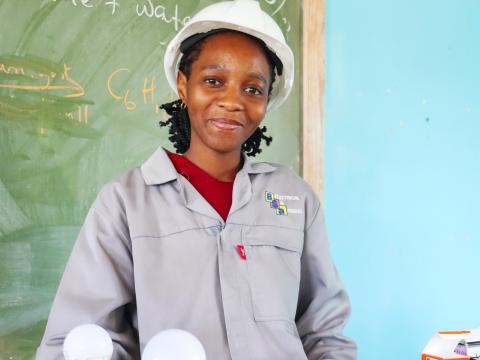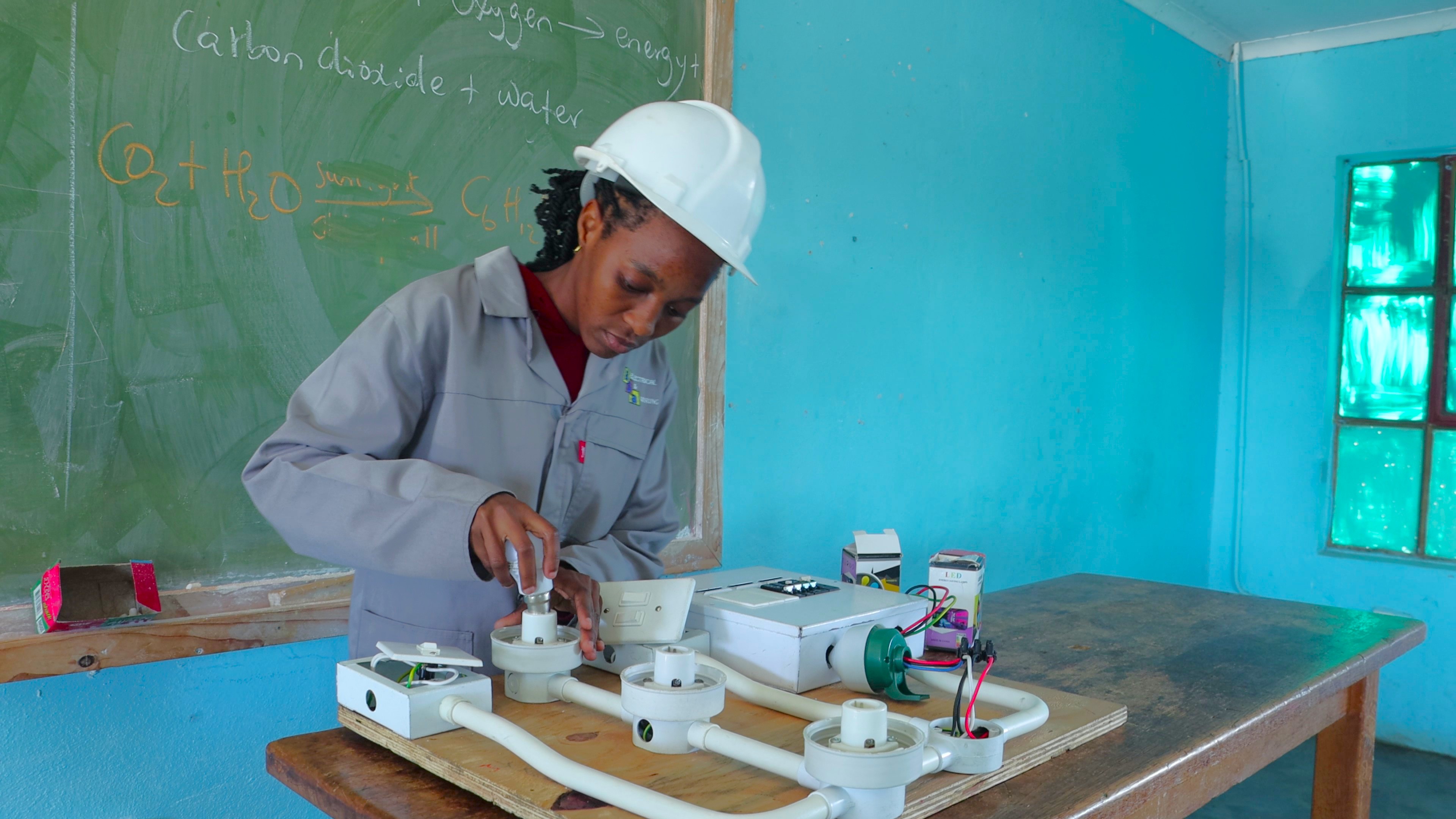Nokwanda Breaking Barriers to Become a Female Electrician

After completing high school in 2022, Nokwanda found herself with limited options and no clear direction forward. With no job opportunities, she relied on piece jobs, including babysitting, to get by. The lack of a stable income left her vulnerable and uncertain about her future.
Her life changed when she met Simphiwe Gwebu, a Facilitator for World Vision’s Halting the Spread of HIV Project. Simphiwe introduced her to the project and explained how it aims to empower young people, especially young women, with skills and knowledge to build and improve their lives. Nokwanda says she instantly knew that was the perfect opportunity to turn her life around.

“I knew instantly that this project was what I needed to change my life,” Nokwanda recalls.
Through the project, Nokwanda was given the opportunity to pursue a vocational course in electrical installation and wiring at BSA Training Centre. Sponsored by the project, she took the opportunity to learn a new skill that would allow her to become self-reliant and break the cycle of vulnerability associated with unemployment and dependency.
“Soon I will be a qualified electrician,” she says proudly. “I will be able to earn a living and support myself. This means I won’t have to depend on anyone, which protects me from risks that come with being vulnerable, such as exposure to HIV.”

Nokwanda is also preparing to begin an internship with local electrical companies, like the Eswatini Electricity Company, where she hopes to gain valuable experience and enhance her skills in the field.
“I am really thankful to World Vision for this opportunity. This project has given me hope, and I am determined to make the most of it,” she says.
Nokwanda’s story is one of many that reflect how the Halting the Spread of HIV Project is transforming lives by equipping young women with practical skills and knowledge. By promoting economic empowerment and reducing dependence, the project directly addresses the social and economic drivers of HIV transmission.
The initiative is funded by The Global Fund through the Coordinating Assembly for Non-Governmental Organisations (CANGO), with World Vision Eswatini as the implementing partner.